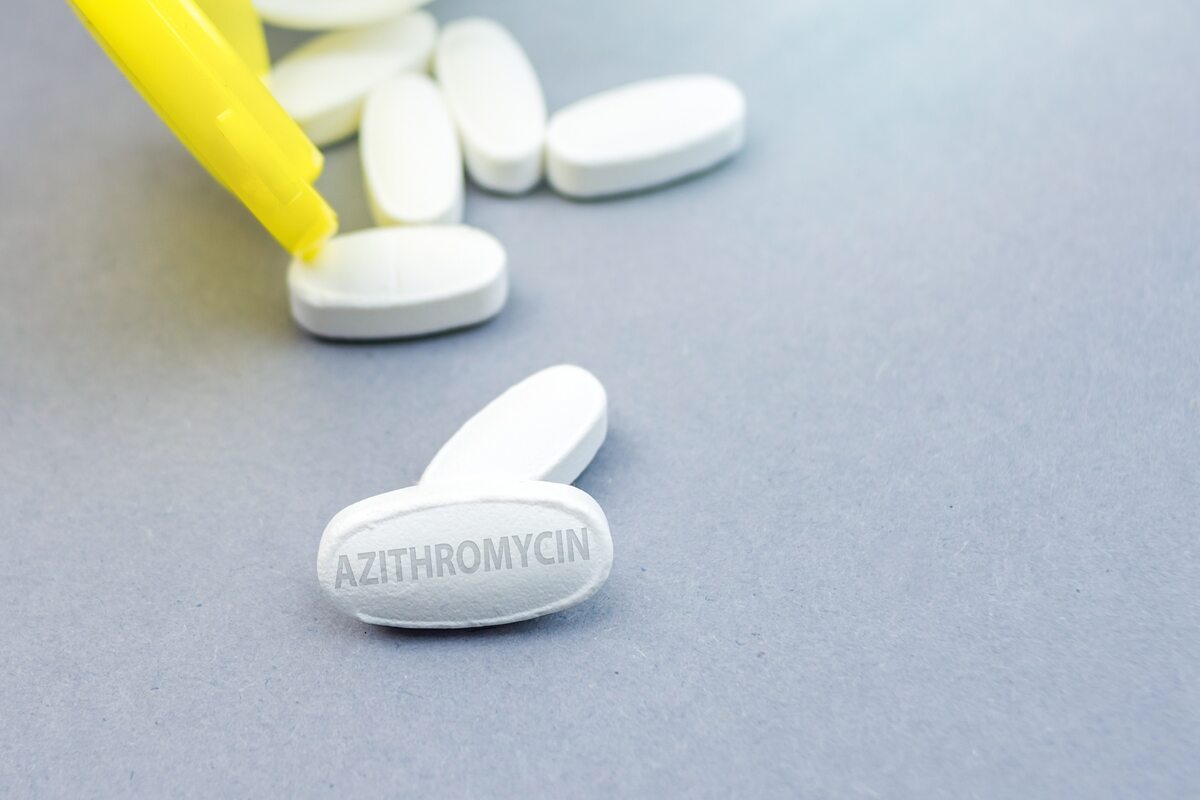Drugs for Treating Traveler’s Diarrhea: Suprax, Azithromycin, and Cipro
March 15, 2023
Traveling to faraway places is one of life’s greatest pleasures, but sometimes it comes with certain health risks. Visiting areas with poor sanitation, for example, travelers are exposed to diseases such as traveler’s diarrhea. Of course, visiting these places doesn’t mean you’re guaranteed to contract the illness, but the chances are high.
If you are planning a trip abroad or have just returned home and are experiencing symptoms associated with traveler’s diarrhea, it’s time to learn more about this condition. Let us tell you all about traveler’s diarrhea, preventative measures, as well as commonly used treatments (Suprax, Azithromycin, Cipro) to help you get a better understanding of the illness and make sure you prevent it or recover quickly.
What Is Traveler’s Diarrhea?
As you may be aware, traveler’s diarrhea (TD) is an intestinal disorder that affects travelers to areas where the water and food may be contaminated. TD often results from eating or drinking food or water contaminated with certain bacteria, viruses, or parasites. Symptoms typically include:
- loose stools
- stomach cramps
- nausea
- vomiting
- fever
Traveler’s diarrhea is caused by consuming food or water contaminated with certain types of bacteria, viruses, and parasites. Contaminated food can contain harmful organisms such as E. coli, Shigella, Salmonella, Campylobacter jejuni, Cryptosporidium, and Giardia lamblia. Contaminated water can contain germs such as E. coli, Vibrio cholerae, Rotavirus, and Norovirus.
How Long Does Traveler’s Diarrhea Last?
Traveler’s diarrhea typically lasts a few days, usually 3 to 5 days. However, in some cases, symptoms may last up to 10 days or more.
The duration of the illness can vary depending on the severity of the infection, your immune system, and the type of bacteria causing the infection. Although most cases resolve without medical attention, it’s essential to seek medical help if your symptoms are severe or don’t improve after a few days.
Where Is TD Most Common?
Not all travel destinations come with the risk of contracting TD, of course. There are certain parts of the world where you should be cautious and take precautions to prevent getting sick.
Traveler’s diarrhea is most common in countries where water and food safety regulations are not very strict. These countries may lack modern plumbing and sanitation infrastructure, making it difficult to guarantee the quality of their food and water supply. This is particularly true in developing countries, such as those located in Africa, South America, and Southeast Asia.
In addition, certain regions of the world have a higher prevalence of TD due to their climatic conditions and specific diets. That’s why you should always do some research and learn how to travel safely to other countries – just in case.
The Importance of Proper Traveler’s Diarrhea Treatment
Seeking medical attention is vital if you experience symptoms of traveler’s diarrhea. Untreated TD can cause dehydration and electrolyte imbalance due to the loss of water, electrolytes, and nutrients from frequent bowel movements.
Without proper treatment, it can also lead to more severe complications, such as inflammation of the intestines (enteritis) or infection of the entire digestive tract (gastroenteritis). So, don’t put off a visit to your medical provider if you contract the disease on your trip.
The Common Drugs Used to Treat Traveler’s Diarrhea
When dealing with a case of TD, there are several options you can consider. The three most common remedies for traveler’s diarrhea are Suprax, Azithromycin and Ciprofloxacin. Of course, your healthcare provider will be the one to prescribe you the appropriate treatment, but we’re here to introduce you to these three antibiotics.

What Is Suprax and How Does It Work?
Suprax (Cefixime) is an antibiotic used to treat bacterial infections, including traveler’s diarrhea. Suprax works by inhibiting the growth and multiplication of bacteria that cause the infection. It’s especially effective against gram-negative bacteria, which are a common cause of traveler’s diarrhea.
Suprax is available in tablet and oral suspension form. The dosage and administration of Suprax depend on the severity of the infection and your age and weight. But the typical dosage for traveler’s diarrhea in adults is 400 mg once daily for 3-5 days. For children, the dosage is determined based on their body weight and is usually given as a single dose once a day for 3-5 days.
What Is Azithromycin and How Does It Work?
Azithromycin is another antibiotic used to treat severe cases of traveler’s diarrhea. Azithromycin is effective against a wide range of bacterial strains, including those responsible for most cases of TD. It works by killing bacteria causing the infection.
Azithromycin is available in the form of tablets, extended-release suspension, and oral suspension. The recommended dosage of Azithromycin for adult patients with traveler’s diarrhea is 500mg once daily for three days. The medication should be taken on an empty stomach, one hour before or two hours after meals.
What Is Cipro and How Does It Work?
Ciprofloxacin, also known as Cipro, is another commonly used antibiotic for treating traveler’s diarrhea. Cipro is effective against a wide range of bacterial strains, including those responsible for most cases of traveler’s diarrhea.
Ciprofloxacin is available in the form of tablets, oral suspension, and extended-release tablets. The dosage and administration will depend on the individual case, but the typical dosage for adult patients is 500mg twice daily for 1-3 days.
Side Effects of Suprax, Azithromycin, and Ciprofloxacin
Although Suprax, Azithromycin, and Ciprofloxacin are typically well-tolerated and safe drugs, some people may experience negative effects from them. The severity and frequency of these medications’ side effects can vary, and some of them might need medical treatment.
The most common side effects of these three antibiotics may include the following:
- nausea
- diarrhea
- vomiting
- stomach pain
- gas
- heartburn
- headache
These side effects are usually mild and go away on their own. However, in rare cases, all three medications can cause more severe side effects or allergic reactions.
- Suprax: severe diarrhea, rash, itching, and trouble breathing
- Azithromycin: severe diarrhea, abdominal pain, liver problems, dizziness, fainting, loss of appetite, fast or irregular heartbeat, rash, hives, swelling, difficulty breathing, etc.
- Cipro: tendon damage, nervous system disorders, rash, hives, itching, fever, swelling, difficulty breathing, fainting, cough, etc.
If you experience any of these side effects, you should seek medical attention immediately.
Keep in mind that these antibiotics may interact with other medications, so it’s important to inform your healthcare provider of any other medications or supplements you may be taking so they can prescribe the right treatment for your health condition.
Which Drug Is Right for You?
Suprax, Azithromycin, and Ciprofloxacin are all effective treatments for traveler’s diarrhea. In clinical trials, these medications have been shown to shorten the duration and severity of symptoms associated with traveler’s diarrhea caused by bacterial infections. However, as certain strains of bacteria may be more resistant to some antibiotics than others, the choice of drug and dosage may depend on the particular type of bacteria causing the infection.
The choice of antibiotic for treating traveler’s diarrhea depends on several factors – the type and severity of your infection and other drugs you are taking. Remember to inform your healthcare provider about any allergies, other medications you’re taking, and if you are pregnant or breastfeeding.
Always discuss your treatment options with your doctor or pharmacist, who can help you decide which drug is best for you and provide more information about the pros and cons of each medication.
How to Avoid Getting Traveler’s Diarrhea while Traveling
The best way to avoid traveler’s diarrhea is to take preventive steps, from non-medical measures to considering travel vaccines and drugs. These are some great ways to protect yourself from traveler’s diarrhea while abroad.
- Practice good hygiene: Wash your hands frequently with soap and water, especially before eating or preparing food. If soap and water are unavailable, use an alcohol-based hand sanitizer.
- Be careful what you eat and drink: Drink only boiled or bottled water, and be careful when eating food that may not have been prepared properly. Avoid salads, fruits that can’t be peeled, and unpasteurized dairy products.
- Consider taking probiotics: Some studies have shown that taking probiotics may reduce the risk of developing traveler’s diarrhea.
- Consider preventive medication: In some cases, your healthcare provider may recommend taking preventive medication to reduce the risk of developing traveler’s diarrhea.
- Consider the Dukoral vaccine: Dukoral prevents traveler’s diarrhea caused by E. coli bacteria. This is an oral vaccine taken before traveling to high-risk areas.
If you do develop traveler’s diarrhea, it’s best to stay hydrated by drinking plenty of fluids and rest as much as possible. If the symptoms persist after a few days or become severe, seeking medical attention and starting antibiotic treatment may be necessary.
Consult Our Experts for More Information and Advice
When dealing with traveler’s diarrhea, it’s important to consult experts who can help you get the correct treatment for your symptoms. Make sure to contact your medical provider, especially in more severe cases.
If you need a consultation about any medication or treatment, feel free to visit Everest Pharmacy. Our pharmacists are here to answer all your questions and be a port of call for all your healthcare and wellness needs. From prescription refills to medication reviews, we’re here to serve you!
Contact us and let our experts solve all your healthcare and medication dilemmas.






